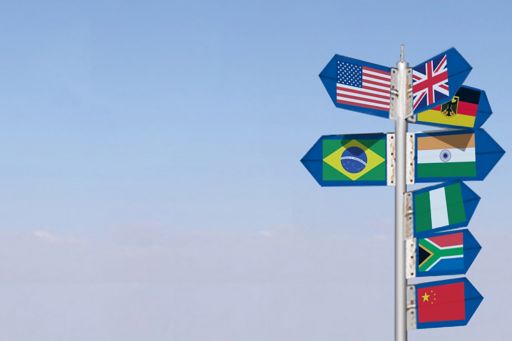On June 8, 2021, the Brazilian authorities published Decree n. 10.714/2021¹, which enacts the double taxation treaty signed with Switzerland on May 3, 2018.
Additionally, on May 26, 2021, Decree n. 10.705/2021² was published enacting the double taxation treaty with the United Arab Emirates, which was signed with Brazil on November 12, 2018.
The provisions of these two treaties will apply from January 1, 2022.
WHY THIS MATTERS
The treaties’ provisions on the avoidance of double taxation should help instill a sense of certainty and clarity in commercial and cross-border labor relations between the two countries party to each treaty and, consequently, should help companies and their global mobility programs protect their cross-border workers against the risk of double taxation. The provisions on the exchange of information provide an additional incentive for Switzerland-Brazil and UAE-Brazil international workers to be compliant with their tax obligations, as well as for the countries’ bilateral tax rules to be aligned with the most up-to-date OECD standards.
Double Taxation Treaties (“DTT”) Key Considerations
Brazil-Switzerland
The DTT takes account of the OECD’s base erosion and profit shifting (BEPS) project by including an anti-abuse clause (also known as “treaty shopping”), which is considered as a situation whereby a person benefits from the DTT between two jurisdictions without being a resident of one of those jurisdictions. BEPS’s Action 6 Report states the requirements to establish a minimum level of protection against treaty abuse.³
Compared with other recent DTTs signed by Brazil, this DTT is different in that it includes singular provisions for earnings related to property income and capital gains, and for the taxation of dividends and interest. Additionally, the treaty has a specific article related to the earnings received by technical workers, which has a distinct definition under this DTT.
Finally, the administrative assistance clause in this Brazil-Switzerland DTT establishes a required cooperation in terms of the exchange of information, addressed by current international standards.4
Brazil-United Arab Emirates
Similarly, the DTT signed between Brazil and the UAE is largely based on the OECD Model, and establishes exchange of information cooperation between the countries.
A possible conflict may arise between the applicability of this DTT’s provisions and Brazilian domestic legislation, as Brazil still considers the UAE to be a low-tax jurisdiction (‘tax haven’). Therefore, more clarity would be required from the Brazilian authorities on withholding taxation for those residents eligible under this treaty.
KPMG NOTE
Brazilian taxpayers and companies with global mobility programs may wish to consult with their qualified tax professionals to discuss the impacts of these treaties on their tax affairs in Brazil.
FOOTNOTES
1 To see (in Portuguese) the Decree n. 10.714/2021, with the double taxation treaty between Brazil and Switzerland (Decreto Nº 10.714, de 8 de Junho de 2021, Diário Oficial da União (09/06/2021)), click here. For related coverage, see GMS Flash Alert 2021-119, April 22, 2021.
2 To see (in Portuguese) the Decree n. 10.705/2021, with the double taxation treaty between Brazil and the United Arab Emirates (UAE) (Decreto Nº 10.705, de 27 de Maio de 2021, Diário Oficial da União (27/05/2021)), click here.
3 OECD. To read “Action 6, Prevention of tax treaty abuse” (in English), click here.
4 OECD. To read the Convention on Mutual Administrative Assistance in Tax Matters (in English), click here.
The information contained in this newsletter was submitted by the KPMG International member firm in Brazil.
Connect with us
- Find office locations kpmg.findOfficeLocations
- kpmg.emailUs
- Social media @ KPMG kpmg.socialMedia
Stay up to date with what matters to you
Gain access to personalized content based on your interests by signing up today
© 2024 KPMG Tax Advisors-Assessores Tributrios Ltda., a Brazilian limited liability company and a member firm of the KPMG network of independent member firms affiliated with KPMG International, a Swiss cooperative. All rights reserved.
KPMG International Cooperative (“KPMG International”) is a Swiss entity. Member firms of the KPMG network of independent firms are affiliated with KPMG International. KPMG International provides no client services. No member firm has any authority to obligate or bind KPMG International or any other member firm vis-à-vis third parties, nor does KPMG International have any such authority to obligate or bind any member firm.
GMS Flash Alert is a Global Mobility Services publication of the KPMG LLP Washington National Tax practice. The KPMG name and logo are trademarks used under license by the independent member firms of the KPMG global organization. KPMG International Limited is a private English company limited by guarantee and does not provide services to clients. No member firm has any authority to obligate or bind KPMG International or any other member firm vis-à-vis third parties, nor does KPMG International have any such authority to obligate or bind any member firm. The information contained herein is of a general nature and is not intended to address the circumstances of any particular individual or entity. Although we endeavor to provide accurate and timely information, there can be no guarantee that such information is accurate as of the date it is received or that it will continue to be accurate in the future. No one should act on such information without appropriate professional advice after a thorough examination of the particular situation.


